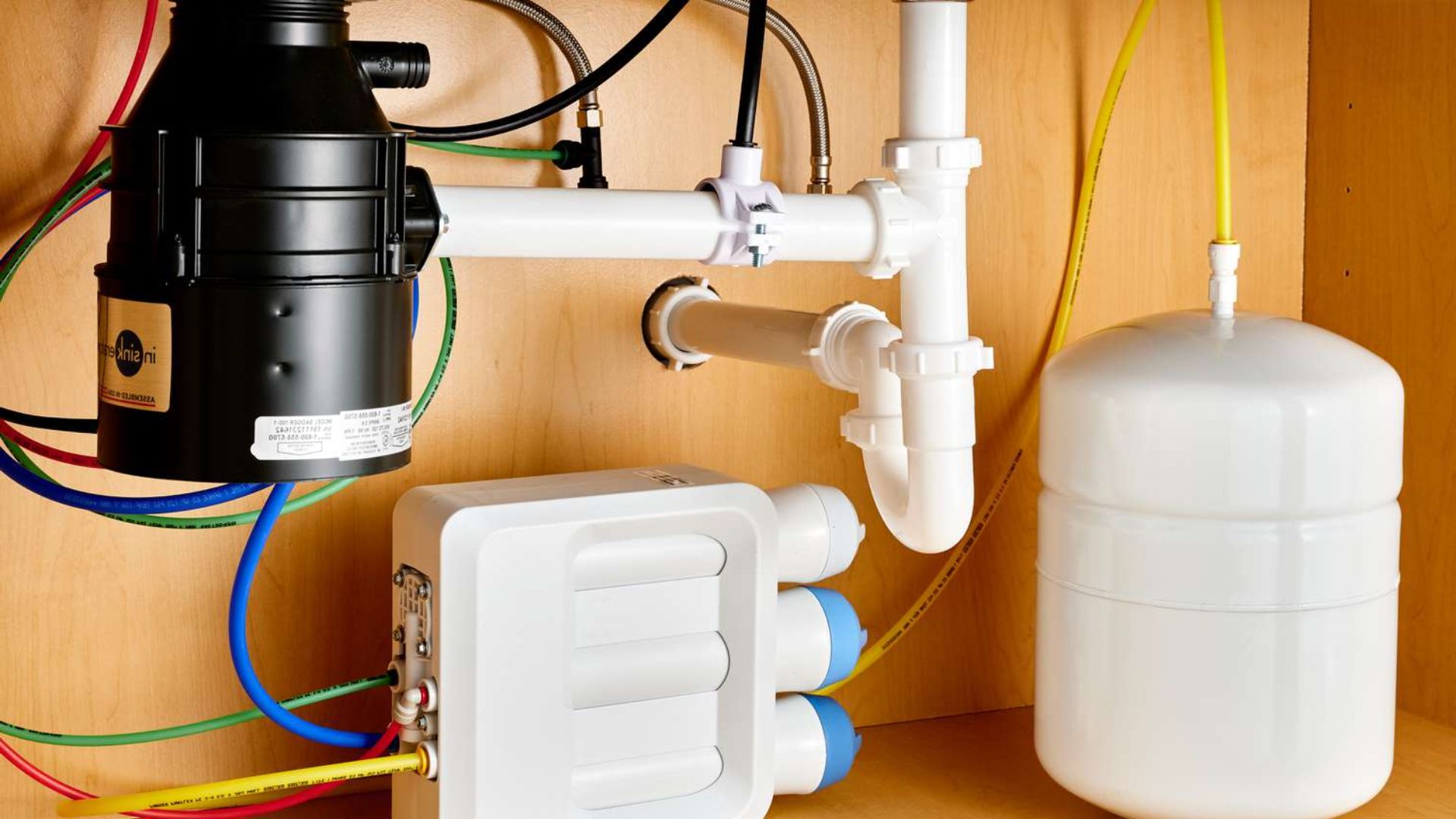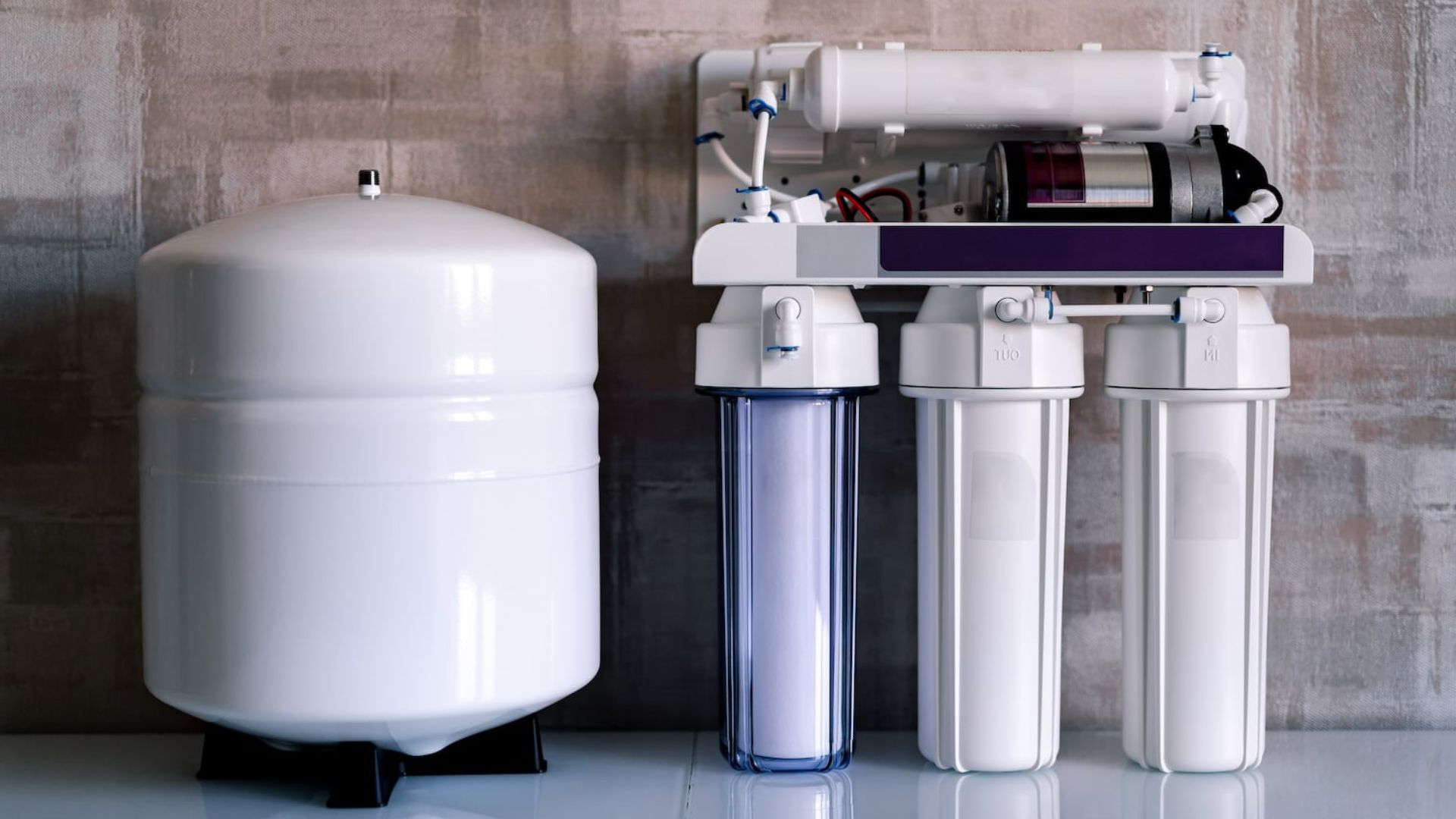7:00AM to 5:00PM
If you want cleaner water in your home, you’ve got two main choices: point-of-use filters that purify water at specific taps or whole-home systems that filter every drop coming into your house. Both improve water quality but differ in how much they treat, how easy they are to maintain, and how much they cost.
Point-of-use filters are simple to install and give you clean water where you need it most—like for drinking and cooking. But they only work at one tap at a time. Whole-home filtration systems, on the other hand, treat all the water in your house, meaning cleaner water for showers, laundry, and even outdoor use. However, they do require professional installation and a bigger upfront investment.
Choosing between a point-of-use or whole-home filtration system comes down to a few key factors: your budget, the size of your home, and the quality of your water. Let’s break down the pros and cons of each so you can decide which one is right for you.
We’ll compare water filtration systems’ effectiveness in removing contaminants, installation and maintenance needs, and costs. Using the information provided, you can decide which option is better for your household’s water purification needs.

Point-of-use (POU) water filters, also known as point-of-entry filters, are systems designed to purify water when used, such as at a faucet or tap. These filters are installed at specific water outlets where drinking or cooking water is needed.

Whole home water filtration systems are centralised treatment solutions that filter all the water entering a home. These systems are installed where the main water line enters the home, often in the basement or garage.
When choosing between point-of-use and whole-home water filtration systems, several important factors should be evaluated to determine the most suitable option for your requirements.
Effectiveness
Point-of-use filters are highly effective in removing contaminants directly at the tap, ensuring clean water for drinking and cooking. However, they are limited to a single water outlet, meaning other taps in the home remain untreated. Whole-home systems are designed to filter a broader range of contaminants across all water sources in a house. This centralised approach ensures more consistent and thorough water treatment throughout the property.
Convenience
Point-of-use systems are user-friendly and straightforward to install and maintain, but they require frequent filter replacements and need to be installed at each desired tap. Whole-home systems demand professional installation and sufficient space to house the equipment, yet they offer the convenience of filtered water from every tap in the home and involve fewer filter changes overall.
Cost
Point-of-use systems are more budget-friendly upfront, both for the initial purchase and replacement filters. However, expenses can accumulate when installing multiple units across different taps. Whole-home systems involve a significant upfront investment for equipment and professional installation, but they require fewer filter replacements, which can be more cost-efficient in the long run.
Before making a decision, consider your budget, the size of your home, and how clean your water is. If you live in an apartment, rent your home, or just need extra filtration in certain areas, a point-of-use filter is a practical and affordable choice.
The lower upfront costs and easy installation make point-of-use a great temporary solution. However, a whole home system is likely better for larger homes with families, poor water quality, or problematic water issues.

Whole house water filters treat all water sources and provide consistent quality water with minimal long-term maintenance. Conduct water testing to understand your unique water contamination issues.
This will help determine whether whole-house filters are warranted or if point-of-use filters suffice. Also, consider whether you are willing to DIY install or need professional help when deciding between the two filtration options.
Both options have their benefits. Point-of-use filters are budget-friendly and perfect for cleaner drinking water, while whole-home systems provide a complete solution for every drop in your house. It all comes down to what suits your lifestyle, budget, and water quality needs.
When deciding which option may be suitable for your home, carefully consider your needs, water quality, and budget. Testing your water first is also recommended to identify any specific contaminants or issues to target.
Are you unsure which system is right for you? The experts at Gold Coast Plumbing Company can help you assess your water quality and choose the best filtration option for your home. Contact us today to find the perfect solution for cleaner, safer water.